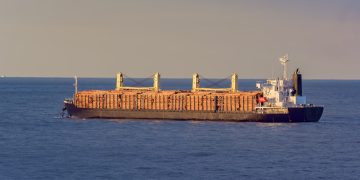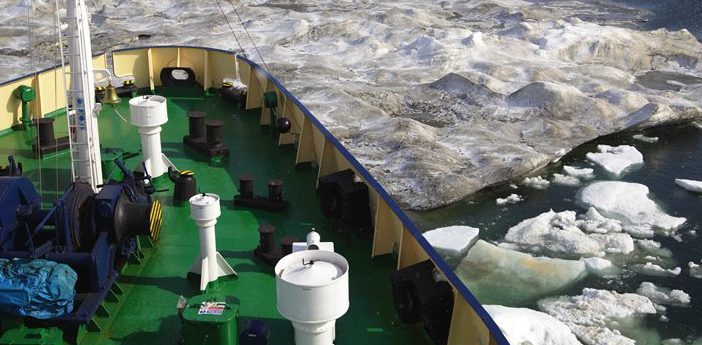As a meeting of the IMO’s Marine Environment Protection Committee (MEPC 74) in London closed Friday, the Clean Arctic Alliance expressed frustration over Member States’ lack of action to minimize black carbon emissions in the Arctic.
In particular, Member States did not support a proposal by the Clean Shipping Coalition and Clean Arctic Alliance member Pacific Environment to immediately switch away from HFO in Arctic, despite a broad support among Member States for regulations to control black carbon emissions.
Namely, at the closing of MEPC 74, it was agreed that concrete proposals should be put forward for consideration at PPR 7 in February 2020, but member states “did not seize the opportunity to make some preliminary decisions this week”, said Dr Sian Prior, Lead Advisor to the Clean Arctic Alliance.
After a decade of debate on black carbon emissions from shipping, IMO member states are squandering their chance to respond to its impacts on the Arctic. The IPCC has made clear that we have less than 12 years to counter the worst effects of the climate crisis. Arctic countries and those with an interest in the Arctic have a moral obligation to act on black carbon emissions, following last week’s statement from Finland’s Chair of the Arctic Council, confirming ‘support for enhanced national efforts and international cooperation to reduce black carbon emissions across the Arctic,
…she explained.
During MEPC 74, Canada emphasised during a plenary intervention, during the discussion on black carbon, ‘…one of the options could be the mandated use of distillate fuels…taking into consideration the ongoing work on the proposed HFO ban’.
This signal from Canada adds welcome momentum to the ongoing development by the IMO of an HFO ban on use and carriage as fuel in the Arctic. Up to now, Canada has been on the fence with taking a position on the ban. However, by linking both the issues of spill impacts and black carbon emissions associated with the use of HFO, banning HFO becomes an extremely effective measure to deal with these urgent threats – it’s time for Canada to be more vocal in its support for the ban,
…said Andrew Dumbrille, WWF Canada’s Senior Specialist on Arctic Shipping.
The IMO’s Pollution Prevention and Response (PPR) technical committee will be tasked with considering regulating or otherwise directly controlling Black Carbon emissions from marine diesel engines to reduce the impact on the Arctic.
There will also be further consideration of Black Carbon measurement methods to be used in conjunction with regulations to control BC emissions from marine diesel engines, and a standardized sampling, conditioning and measurement protocol is to be developed.
There was broad support for measures and / or guidance to reduce Black Carbon emissions to be developed by PPR from Belgium, Canada, Finland, France, Germany, Iceland, Iran, the Republic of Korea, Netherlands, Norway, Poland, Romania, Sweden, Tuvalu, and the US, as well as the ICS.
Although a number of countries felt that the consequences of other soon to be introduced measures, such as the 2020 sulphur-cap, needed to be considered too, and Russia suggested that consideration of control measures was premature at this stage.
With respect to the ongoing work to develop a ban on the use and carriage of HFO in the Arctic, recent progress was noted including the adoption of a methodology for impact assessment and a working definition of HFO. The work will continue at PPR 7 in February 2020, when IMO Members are requested to submit impact assessments.
If the IMO and its Members truly want to act urgently to reduce the effects of climate change in my home Arctic region, then rapidly lowering emissions of black carbon by the shipping industry will provide the simplest route to near term reductions in warming. The only way to accomplish this is by immediately switching to distillate or alternative fuels for ships that use, or can use, residual fuels. Additional technologies such as the addition of Diesel Particulate Filters will reduce emissions of black carbon, and its warming effects, even more,
…Mellisa Heflin, Executive Director of the Bering Sea Elders Group also told MEPC 74.


































































